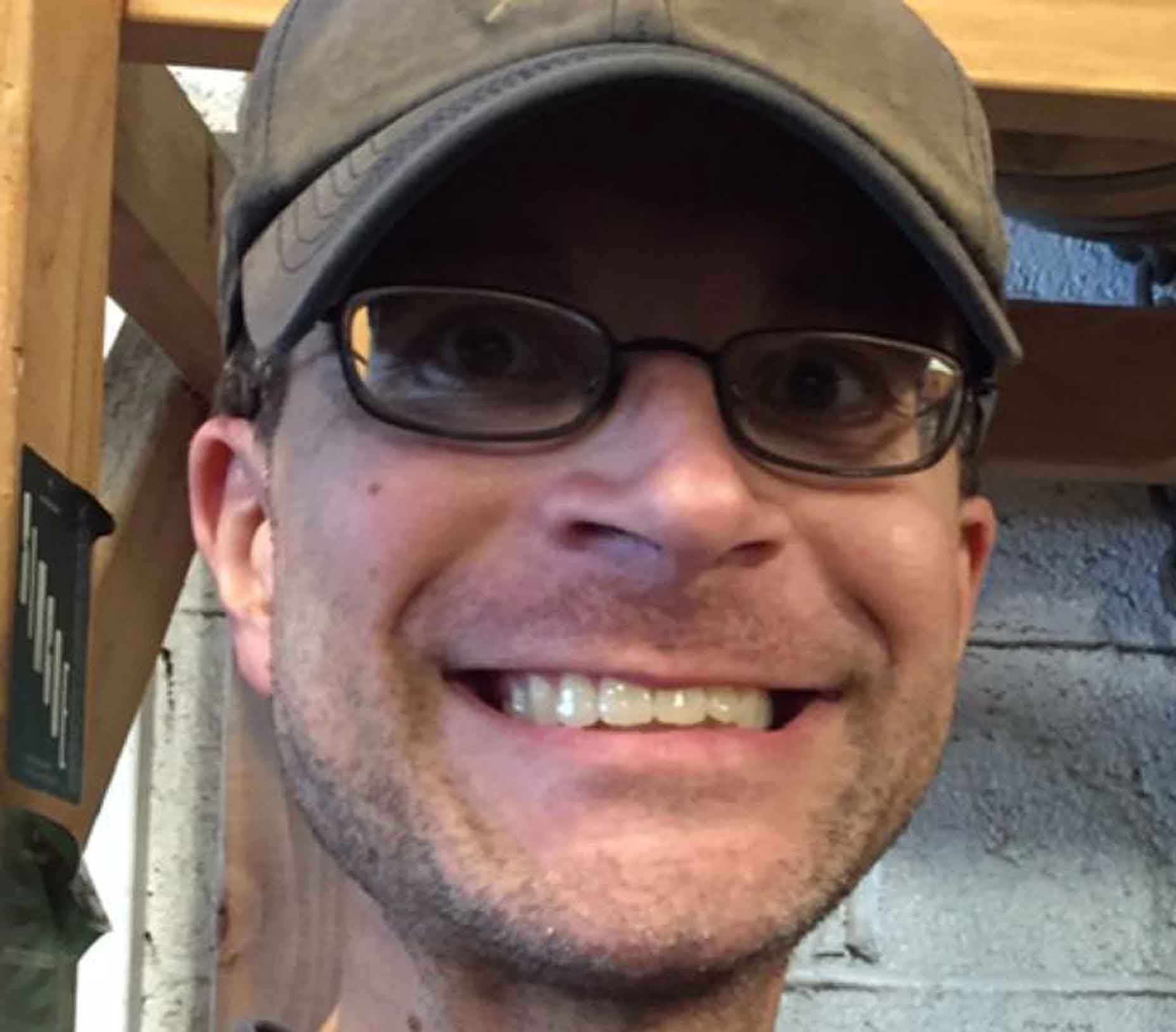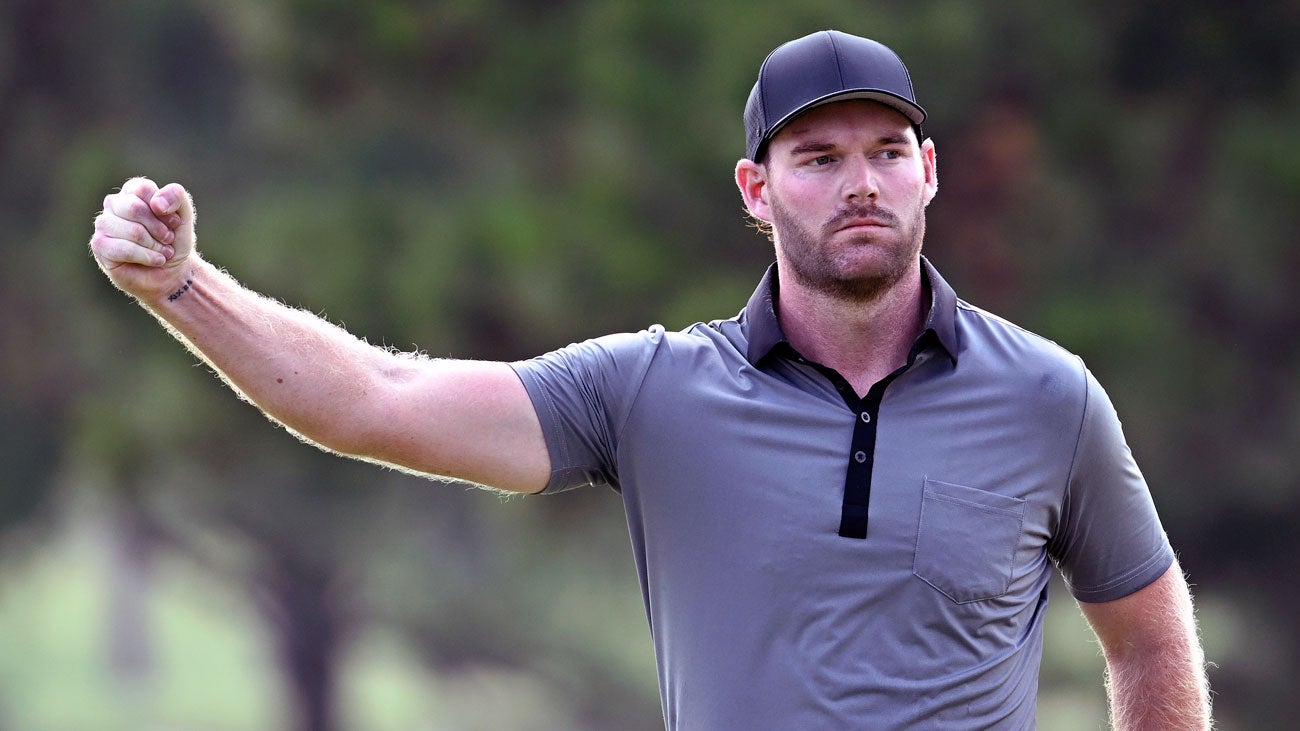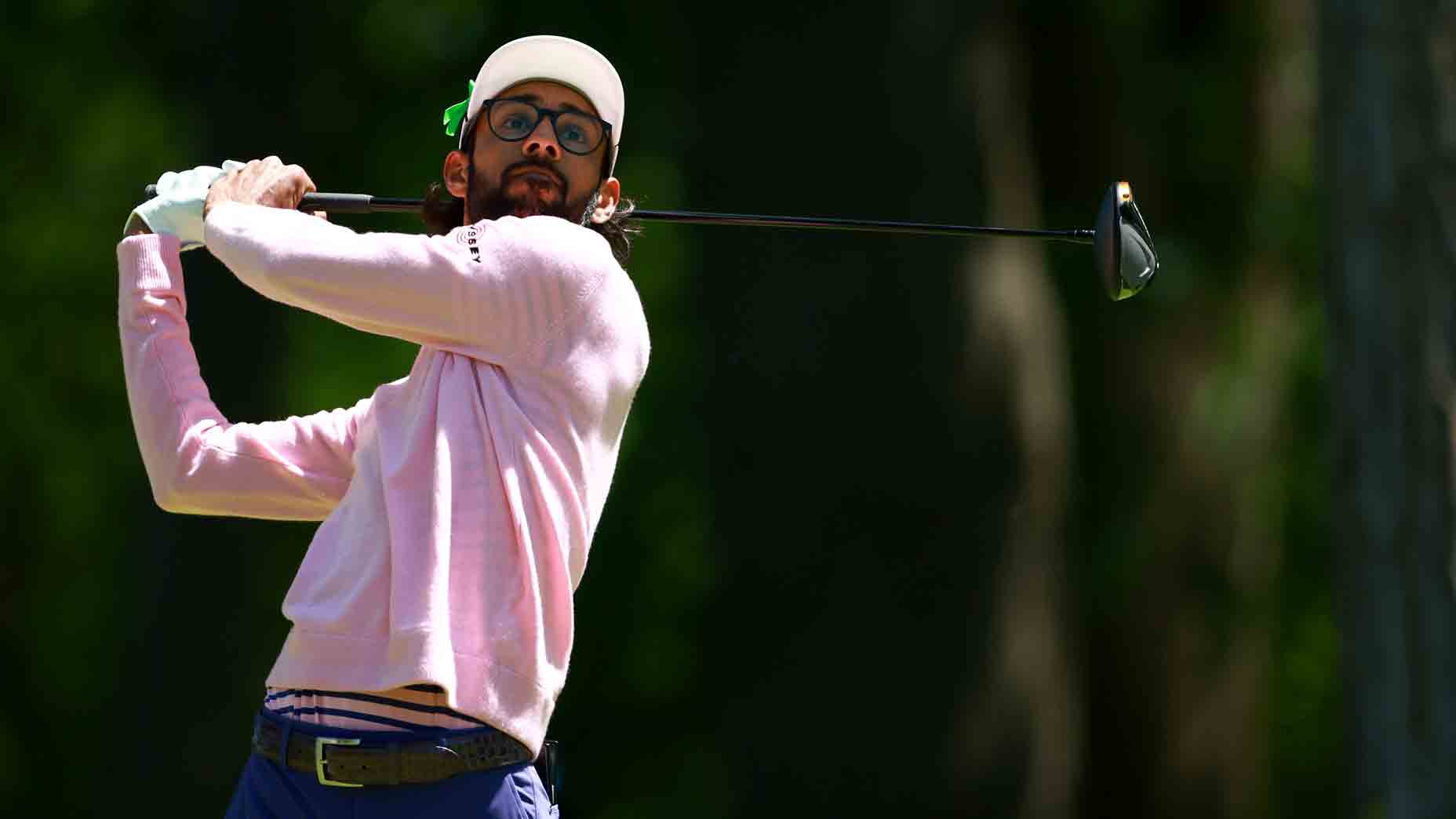Nick Piastowski
Grayson Murray last year at the Sony Open.
Getty Images
“Grayson!”
“Grayson!”
“Grayson!”
Finally, Grayson Murray turned toward the man.
Gary Woodland did too. He remembers it well.
This week, they’re playing the Sony Open on the PGA Tour, and everywhere there are memories of Murray, and everyone is recollecting. Four months before he took his own life, he’d won the Sony, and the tributes have been emotional. Sony pin flags this week are adorned with red-and-black ribbons, the colors of Murray’s favorite NHL team, the Carolina Panthers. Earlier in the week, there was a ceremony that included Murray’s parents, Eric and Terry. Pros have been asked for their thoughts.
Woodland offered a story.
The 2019 U.S. Open winner said he knew Murray, and that they’d been friendly. “Uber-talented kid, obviously,” Woodland said, “and he was a big hockey fan.” Woodland’s caddie, Brennan Little and Murray hit it off talking pucks, actually. Their pairing together last May during the PGA Championship’s final round would no doubt work well.
But shouting of Murray’s first name was tough to ignore. Pros hear all kinds of bellows at events, but the man persisted.
“I thought maybe Grayson made him mad,” Woodland said he thought at first. “He was yelling, ‘Grayson, Grayson,’ time after time, to a point where finally Grayson had to look. We were trying not to, and we were laughing about it talking, and then Grayson looked.
“And it was beautiful.”
Murray had been open about his mental health, especially so after his Sony win. The man at Valhalla Golf Club had listened.
After getting Murray’s attention, he started to cry.
“The guy broke down … and thanked Grayson for how open he was about his struggles and everything. The guy was sober now. He was getting into golf because of Grayson. He heard Grayson’s story.
“Grayson was helping people, and I’ll always remember that.”
That’s also been a thought embraced by Woodland, who’s recovering from a surgery in 2023 that removed a portion of a lesion attached to his brain. Prior to that, the lesion had caused feelings of severe fear in Woodland, to where he thought he was dying, and Woodland said this week while the procedure has helped, he’s still fighting.
“It’s hard to be open, and it’s hard to talk about struggles,” Woodland said. “I say that story about Grayson because I’ve been very open about what I’ve been going through, and last year wasn’t a good year for me golf-wise, and it’s been hard for me to do things that I want to do, but I know that it’s had a positive impact on other people because I’ve seen the messages; I’ve seen people come up to me when I’m playing.
“Not everyone has the support systems that a lot of us have out here, and I’m very blessed to have a big team around me. There’s people battling and going through a lot of stuff that don’t have that.
“So I’ve been open because I want people to know that are going through something that’s hard that you’re not alone in this, that I’m out here playing, I’m playing, living a dream, but I’m struggling, too. Like I said, I’m blessed to have people around me that can help me. Not everybody has that.”
Have people approached Woodland?
Several, he said. He’s listened to them, too.
With 1-letter, 1-symbol gesture, Grayson Murray remembered by Tour winner
By:
Nick Piastowski
“I’ve had grown men come up to me crying that they’ve been battling brain tumors or battling stuff, and seeing me out here playing again gives them hope,” Woodland said. “I’m trying to do that. At the end of the day, I want to have a positive impact in this world. I’d like to have a positive impact on myself playing golf, and I’d like to have a positive impact on my family.
“It was hard for me last year until the last couple months when we figured some stuff. It’s been hard for me to be around my kids. My kids have so much energy, and my brain couldn’t stand it. My brain couldn’t keep up. My poor wife has to explain to my kids why Dad has to go to the room because too much energy and excitement — my kids are full of life and Daddy can’t handle that.
“So I couldn’t be the father I wanted to be. I couldn’t play the way I wanted to play. But my story and being able to help and talk about it has helped me, and that’s one thing that kept me going because I wasn’t who I was trying to be, but I’m helping other people hopefully go through something that they’re battling with, and their stories kept me going, as well.”
Editor’s note: To donate to the Grayson Murray foundation that raises awareness of mental health and addiction, please click here.
“>

Nick Piastowski
Golf.com Editor
Nick Piastowski is a Senior Editor at Golf.com and Golf Magazine. In his role, he is responsible for editing, writing and developing stories across the golf space. And when he’s not writing about ways to hit the golf ball farther and straighter, the Milwaukee native is probably playing the game, hitting the ball left, right and short, and drinking a cold beer to wash away his score. You can reach out to him about any of these topics — his stories, his game or his beers — at nick.piastowski@golf.com.



